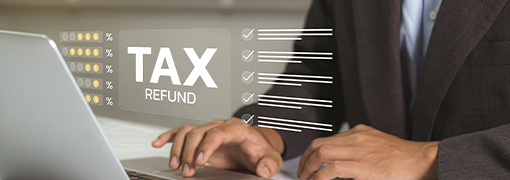Iowa Taxpayers Beware: Avoid These Common Tax Scams

Tax season is a prime opportunity for scammers to deceive taxpayers. From fake IRS agents to dishonest tax preparers stealing refunds, scammers use deceptive tactics to target taxpayers yearly. Knowing what to watch for can help you stay ahead and protect yourself from tax fraud.
The IRS will never call, text, or email you demanding payment.
Dishonest tax preparers may steal your refund or falsify returns for their gain.
Scammers often target seniors and vulnerable taxpayers with fake offers of tax relief.
The IRS never accepts gift cards, wire transfers, or cryptocurrency as payment.
Direct deposit is the safest way to receive your tax refund.
In fiscal year 2024, the IRS Criminal Investigation Division initiated over 2,667 criminal investigations, identifying more than $9.1 billion in tax and financial fraud. And that’s just what the IRS uncovered—the actual losses could be much higher.
Fraudsters often impersonate IRS agents or tax professionals to steal sensitive information. Knowing the most common scams can help you spot fraud before you become a victim.
Not all tax preparers have your best interests in mind. Some engage in fraud by:
Overpromising large refunds to lure in clients.
Falsifying information on returns to boost refunds.
Stealing refunds by altering direct deposit details.
Refusing to sign returns to avoid accountability.
Tip: Always use a trusted tax preparer with a valid Preparer Tax Identification Number (PTIN).
Older adults are often targeted by scammers posing as IRS agents or tax relief services. Common tactics include:
Threatening calls claiming immediate payment is due.
Fake tax liens claiming assets will be seized.
Social Security-related fraud, where scammers claim benefits will be cut off.
Tip: The IRS will never threaten arrest or demand payment over the phone. Always verify suspicious tax-related calls.
Some companies promise to erase your tax debt or settle for "pennies on the dollar." These scams often:
Charge high fees upfront without reducing debt.
Mislead taxpayers into believing they qualify for programs they don't.
Tip: If you owe taxes, visit the IRS Taxpayer Assistance Center to explore legitimate payment options.
Taxpayers may receive emails or texts pretending to be from the IRS, falsely claiming a tax bill is due or a refund is waiting. These messages often:
Contain malicious links that aim to steal personal information.
Ask for bank details or Social Security numbers.
Impersonate IRS officials using fake caller IDs.
Tip: The IRS will never contact you via email or text for payments or personal information.
If someone insists you must pay your taxes with gift cards, wire transfers, or cryptocurrency, it's a scam. The IRS never requests payments through these methods—only official, secure channels.
Tip: If someone demands a gift card for payment, hang up immediately.
The IRS does not:
Demand immediate payment over the phone.
Request payment via gift cards, wire transfers, or cryptocurrency.
Threaten law enforcement action over unpaid taxes.
The IRS will:
First, contact you by mail if you owe taxes.
Provide official IRS contact details for payment options.
Update your tax account at irs.gov.
Tax scams are evolving, but awareness is your best protection. If an IRS-related message or call seems suspicious, verify it before acting.
Have questions? Visit IRS.gov for additional fraud resources or contact FSB for more guidance on protecting yourself this tax season.
Direct deposit is the most secure way to receive your refund. It eliminates the risk of stolen checks and ensures fast, reliable payment to your account.

Recognize the signs of counterfeit money to protect yourself.

Find free tax filing resources and maximize your refund.

Easily download your tax documents using FSB's Online Banking.